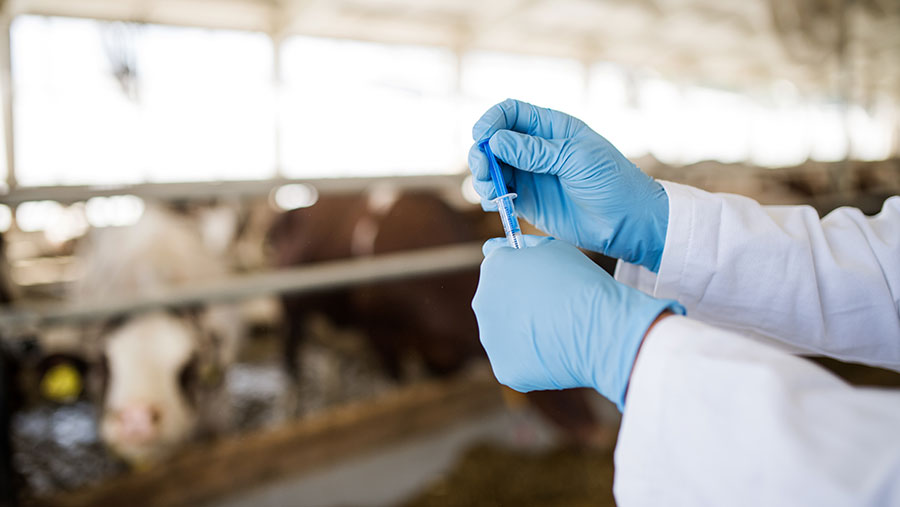EU antibiotics policy change sparks debate
 © Halfpoint/Adobe Stock
© Halfpoint/Adobe Stock Campaigners have urged the UK government to tighten legislation on antibiotics use in line with new rules introduced by the EU.
The Alliance to Save Our Antibiotics (ASOA), supported by organic farming body the Soil Association, made the call after the EU introduced stricter rules on 28 January.
These rules mean farmers on the continent will no longer be allowed to give preventative group antibiotics treatments, the ASOA said.
The trade bloc has also banned imports of meat, dairy, fish and eggs produced using antibiotic growth promoters.
UK government officials have repeatedly supported the changes and pledged to introduce similar laws here, the ASOA said.
But it accused the government of failing to act, leaving British farming lagging behind.
The ASOA said it remained legal in the UK to:
- Give antibiotics to farm animals routinely, rather than just when they are sick
- Give preventative group treatments to farm animals
- Give antibiotics to farm animals to compensate for inadequate hygiene
- Import animal foods produced with antibiotic growth promoters.
See also: Vets warn of watery mouth antibiotic shortage
Cóilín Nunan, ASOA scientific adviser, also highlighted post-Brexit trade deals that could allow meat reared using growth promoters to enter the UK.
Tariff cuts on imported meat and dairy produced with extremely high antibiotics use could force British farmers to lower standards on health, welfare and antibiotics use, Mr Nunan said.
Disappointed
But Chris Lloyd, secretary general of the Responsible Use of Medicines in Agriculture (Ruma) alliance, said he was disappointed by the ASOA’s angle, which appeared to put British farming in a bad light.
Ruma does not support routine antibiotics use – a practice that is not common on British farms, he said.
“I also resent any inference that suggests UK producers do, or would in the future, stoop to using antibiotic growth promoters.
“Instead of the negative headlines that this call will produce, we should be celebrating the huge strides that British farming has made to reduce its antibiotics use,” Mr Lloyd said.
“In the livestock and dairy sectors, antibiotics use has dropped by 52% since 2014. That has been achieved voluntarily,” he said.
For critically important antibiotics – those which the UK is trying to preserve for human use – the achievement is even greater at an almost 80% reduction over the same time period.
These reductions mean that, rather than lagging behind the EU, the UK is, in fact, one of the lowest users of antibiotics and therefore well ahead, Mr Lloyd argued.
Workable rules
While he agreed that the UK government had been slower to act than its EU counterparts, he pointed out that the Veterinary Medicines Directorate (VMD) had drawn up plans to continue reducing antibiotics use in animals and stated it would work with stakeholders to produce workable rules.
But Mr Lloyd also warned that any divergence with EU laws could harm export trades under the UK’s status as a third country since Brexit.
Antibiotics use policy was complex and required all parties working together to use medicines responsibly, he added.
“Outright bans are black and white and don’t allow for real-life situations where animal welfare is at stake.
“Delays in treating animals until lab cultures have been grown to establish the bacterium can lead to animal suffering and disease spread,” Mr Lloyd warned.
Trained vets will be able to assess those risks on-farm, but may have their hands tied if a total ban was introduced. It would best for the animals if there was some way of working on a case-by-case basis, he stressed.
